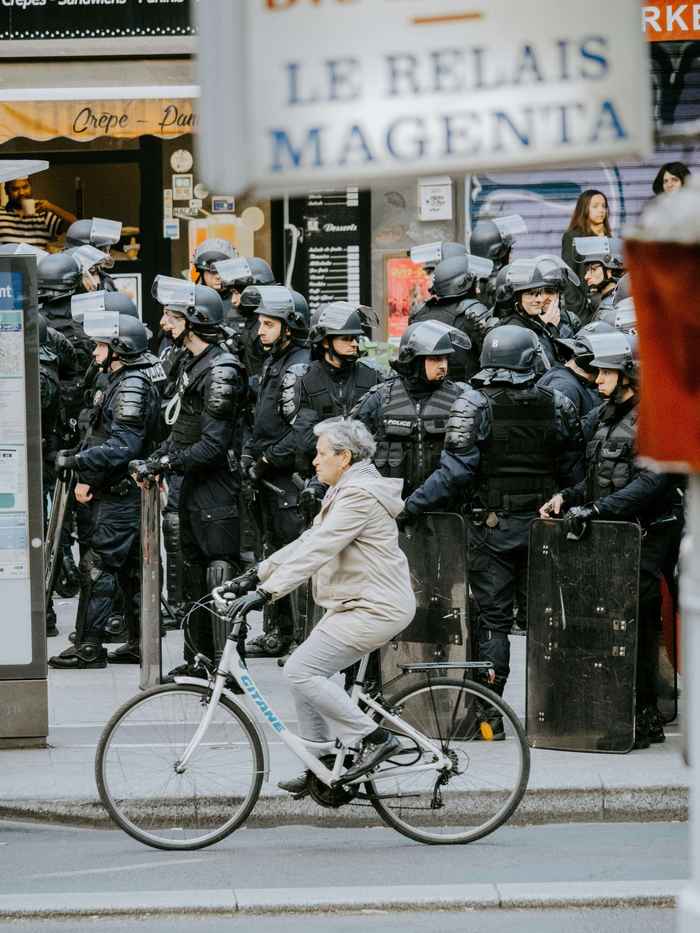Emergencies of Authoritarianism: Global Entanglements
- Date
- 10 October 2024
- Time
- 19:00
- Location
- Spui25

Authoritarian, right-wing populist and fascist tendencies are currently gaining strength all over the world. But how do different instantiations of authoritarianism relate to each other? It is clear that methodological nationalism cannot account for the mimetic resurfacing of memes, electoral strategies and administrative maneuvers in hitherto unconnected parts of the globe. But the well-rehearsed dialectic between the local and the global does not capture the phenomenon either: specific forms of authoritarianism are neither local phenomena that become interconnected only ex post facto, nor are they simply local manifestations of a global phenomenon. Rather, the heterogeneous emergencies of authoritarianism are transversal, interacting with, inspiring and challenging each other in complex ways, not without maintaining their respective specific national and regional frontlines. The participants of this panel discussion will shed light on the global entanglements of authoritarianism, based on their specific local experiences and situated knowledge. What are some of the main characteristics of authoritarianism today? How are its different variations connected with each other? How are they dependent on other global developments? What are useful theoretical concepts to analyze, criticize and effectively respond to authoritarianism?
Debaditya Bhattacharya is a professor of English at Jamia Millia Islamia University, New Delhi. Gisela Catanzaro is Professor of Political Science and Sociology at the University of Buenos Aires and independent researcher at CONICET (Consejo Nacional de Investigaciones Científicas y Técnicas). Zeynep Gambetti is an independent researcher in political theory, based in Istanbul, and co-chair of the ICCTP. Eva von Redecker is an independent philosopher and writer, based in Brandenburg (Germany). Daniel Loick is Associate Professor for Political and Social Philosophy at the University of Amsterdam.
The panelists are members of the new research project Emergencies of Authoritarianism, an initiative of the International Consortium of Critical Theory Programs (ICCTP) funded by the VolkswagenStiftung (Germany). This event is co-organized by the ICCTP, Spui 25, and the Philosophy & Public Affairs Group at the University of Amsterdam.
New Research Project: Emergencies of Authoritarianism
Authoritarian, right-wing populist and fascist tendencies are currently gaining strength all over the world. The task is not only to analyze authoritarianism critically, but also to respond to it politically. For this purpose, this project proposes the novel concept of Emergencies of Authoritarianism. Emergencies implies emergences, the development of authoritarian tendencies out of their "normal" latency and enabling conditions. We adopt a critical perspective that analyzes local trajectories in their transversal global entanglements and complex interactions in order to avoid both methodological nationalism and Eurocentric bias. At the same time, emergencies imply urgencies: they demand an immediate response. Authoritarianisms cannot be reduced to past times, nor to distant places, but can emerge, with new victim groups, anywhere.
Over the coming years, the project will organize workshops and conferences at different locations around the globe, and present its results in various publication formats. As a transnational network with equal partners from the global South, we work closely with non-academic actors such as NGOs, cultural institutions, and journalists, using locally generated knowledge to develop robust responses to the threat of authoritarianism.
The project team is coordinated by Judith Butler (Berkeley), Robin Celikates (Berlin), Daniel Loick (Amsterdam) and Zeynep Gambetti (Istanbul), and involves Debaditya Bhattacharya (Delhi), Gisela Catanzaro (Buenos Aires), Denise Ferreira Da Silva (New York), Rosaura Martinez (Mexico City) and Eva von Redecker (Berlin). Emergencies of Authoritarianism was initiated by the International Consortium of Critical Theory Programs (ICCTP) and is funded by the VolkswagenStiftung (Germany).